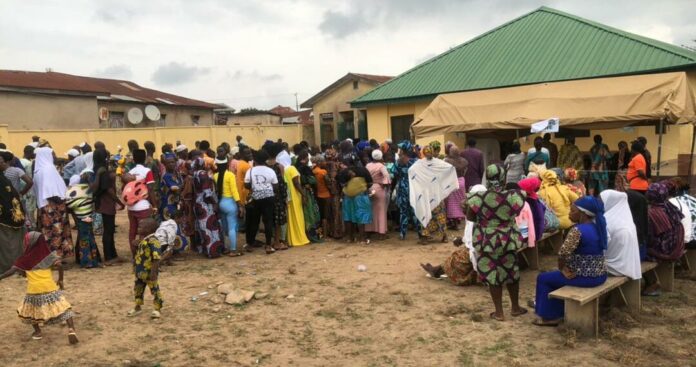“With regards to the 2023 general election, NILDS will be deploying 369 observers nationwide approximately nine in each state and three in each senatorial district in all the 36 states and then we have about 50 in the FCT.”
The National Institute for Legislative and Democratic Studies (NILDS) has deployed 369 observers to monitor compliance with the inclusion of Persons with Disabilities and other vulnerable groups in the electoral process.
The observers are to look at the involvement of women, youth and People with Disability (PWD) in the election process.
The institute announced this on Friday during a media briefing in Abuja.
NILDS also announced its Political Party Watch Project, a nonpartisan research work into electoral processes in Nigeria and inclusivity.
Speaking on behalf of NILDS, the Director of Democracy and Governance, Adewale Aderemi, said that NILDS has established a command centre to coordinate the activities of the coordinators.
“With regards to the 2023 general election, NILDS will be deploying 369 observers nationwide approximately nine in each state and three in each senatorial district in all the 36 states and then we have about 50 in the FCT.
“We will also be hosting a command centre (situation room) in conjunction with the WFD and other stakeholders where we will be taking real-time field reports from these 369 observers in the field.
“We will analyse them through the lenses of inclusivity; we are going to be looking at the involvement of women, youths and People with Disability (PWD) in the process.
“We will also analyse the general conduct of the elections and we will be live on all the social handles of NILDS and WFD,’’ he said.
Speaking on the project, Mr Aderemi said the Political Party Watch Project is a collaboration between the institution and Westminster Foundation for Democracy.
He lamented the exclusion of persons with disabilities, youths and women from the electoral process. He stated that the institute will produce a report after the elections.
Mr Aderemi noted that political parties must improve issues of marginalisation of those groups, adding that donor groups are already battling with fatigue.
He stated that poor leadership recruitment and godfatherism are some of the factors affecting inclusion.
“There has been a lot of intervention in building the capacity of our political parties since 1999, donors are not just willing to put their money in political parties anymore but we are not giving up.
“What we want to do with the Political Party Watch Project of which the monitoring of inclusive practice of the political parties is a part, is to address the challenges we have identified in the political party system in Nigeria,’’ he said.
In his presentation, the Country Representative of WFD, Adebowale Olorunmola, said inclusion is critical in assessing political development in any democracy.
“The health of a democracy is not determined by the successful conduct of elections alone but by the inclusive participation of citizens in the democratic process.
“This is regardless of gender, age, religion, ethnic origin, location or state of ability or disability. This is a key determinant of the health of a democracy and therefore when we have a good percentage of the population participating in the process, we can confidently say our democracy is healthy.
“As we have it, our democracy is a work in progress because, over the years, Nigeria has continued to be on the wrong side of data on inclusive participation and inclusion,’’ he said.
The presidential and National Assembly elections are scheduled to hold on Saturday across the country.


